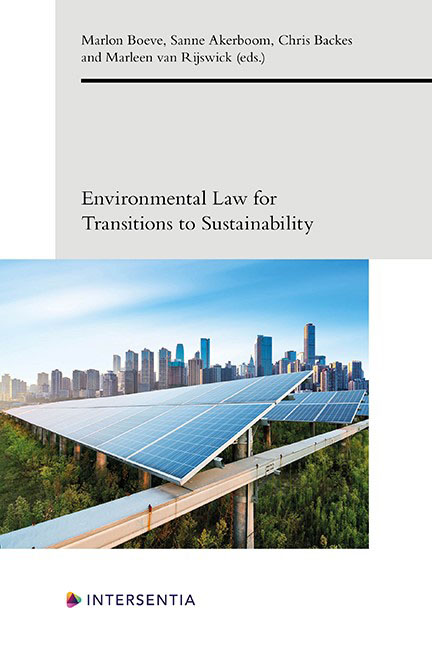Why Reality and Truth Matter in Environmental Law
Published online by Cambridge University Press: 11 November 2021
Summary
INTRODUCTION
The coining of the term ‘alternative facts’ by the US presidential office in 2017 has attracted intense public scrutiny and criticism. In thinking about environmental law, and the way ‘facts’ are used, a re-examination of the perspectives of both governmental and non-governmental participants in environmental decision-making highlights some gaps and weaknesses in relation to these ‘facts’ . Information and evidence are treated differently depending on the rules that govern development decision-making. For example, the scientific reality of what is required to secure climate mitigation in order to remain within the limits set by the Paris Agreementshould inform the relevant laws of decision-making. As the EU and the UK make fundamental transitions from a high carbon economy to a low or net zero carbon economy, so the law needs to support this transition. If law is to do this effectively, then this involves rethinking the evidential basis of environmental decision-making. This imperative is clear given that the EU and UK may not be doing enough to achieve the Paris Agreement commitments. By taking the example of decision-making on shale gas extraction in England, the contention is that the current laws of environmental decision-making may be hampering sustainable outcomes. The question posed in this chapter is to what extent effective outcomes for sustainable solutions of development decision-making may be undermined by the nature and limitations of the ‘facts’ upon which these decisions rely. What is the ‘reality’ described within the decision-making frame ? What ‘truths’ are being denied ? And why does ‘reality and truth’ matter in law for sustainable transitions ?
THE IMPORTANCE OF ‘FACTS’ IN MAKING DECISIONS
While the establishment of ‘fact’ in the rules-based decision-making processes that abound in Europe has not descended into an ‘alternative’ universe, in highly contentious areas of decision-making such as that on shale gas, the entry of political ideology into the policy frame has caused some discomfort.
- Type
- Chapter
- Information
- Environmental Law for Transitions to Sustainability , pp. 79 - 96Publisher: IntersentiaPrint publication year: 2021



